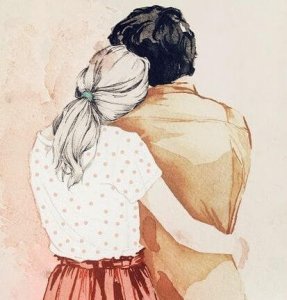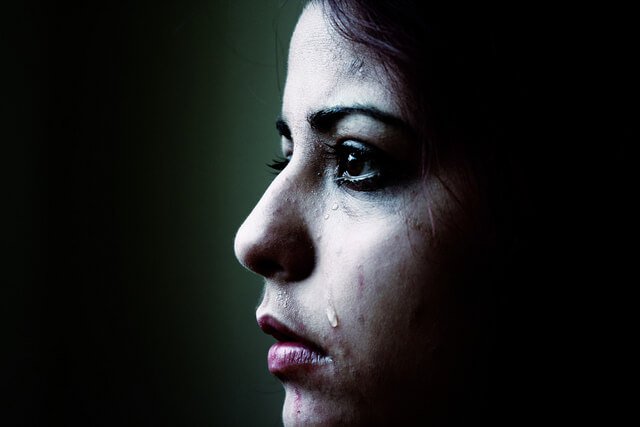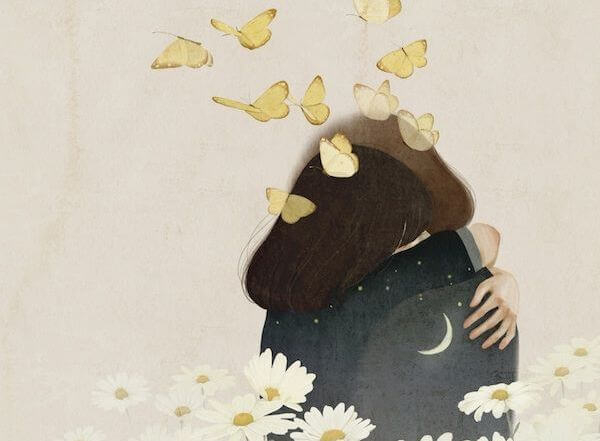When I'm Sad, I Need Empathy, Not Ignorance


Written and verified by the psychologist Gema Sánchez Cuevas
Being empathetic towards your own sadness is sometimes hard. First of all, empathizing with the sadness we feel would mean admitting it exists at all.
It would imply not being ashamed of it and not beating ourselves up for its existence. Sadness speaks of a pain that has touched our soul, a sorrow that hurts and needs to be felt.
It would be simple to shelter our sadness if it wasn’t for the fact that being sad oftentimes is seen as wrong.
“There’s no time to be sad. We only get one life, and it’s meant to be lived happy and smiling. It’s not worth it to feel sad!” How many times have you heard something like that? Does it sound familiar?
Of course we each only get a single life to live. And of course the ideal thing would be for us to be happy most of the time, and not have problems eating away at our existence.
But the fact is that problems exist. Because life is made up of both light and darkness. They coexist in the same space and the same time.
Sadness needs to be heard in order to be understood
We perceive light because of the time we’ve spent in darkness. Thanks to darkness, light is illuminating, clarifying and wise. Therefore, why don’t we see sadness the same way?

It’s because of the disappointments, goodbyes and, in general, the blows that life gives us that we can take meaning out of certain situations.
That’s how we learn lessons that make us who we are, just like the individual grains of sand make up the whole, giant beach.
Painful experiences fall through the sieve into a puddle of wisdom. Darkness inevitably transforms into light. It turns into lessons and shows us what we should understand from a certain experience.
So take time to be with your sadness and understand it. Understand what’s hurting you and what the meaning behind that particular pain is.
Surround yourself with people who don’t belittle your sadness
Nobody can take what we feel away from us. Not with arguments as trite as “crying doesn’t do anything”.
Cry if that’s what you need to do! It doesn’t do nothing! Because your sorrow is valuable. Your sorrow is real and big. Cry if you need to. Crying is a stress reliever. It helps settle down the storm inside. It drains your pain.

Listen to whatever kind of music you want to listen to. Handle your grief as you wish. Take care of yourself, and take care of each one of your emotions. Give them room to grow and breathe in order to understand them.
If they’re there, it’s because there’s something in your soul that needs to be heard and taken into account. Surround yourself with people who know how to value you and your emotions.
People who won’t label you as weak because you’re sad and won’t try to rip your sadness from you without empathizing with it first.
There’s no greater pain than sharing your scars with someone and them be ignored or belittled. That feeling of not feeling listened to or valued makes the sadness we feel even heavier.
Sharing, instead of ignoring, makes the pain feel better
Remember that time you shared your pain with a close friend and instead of giving you a cliché, they were just there with you? They simply let your sadness exist and sheltered it for a while. You talked, cried and even let humor peek out between the senseless words and tears.

That’s the way pain should be handled. Sheltering and caring for it. Taking all the time it needs. Wisdom and embracing the pain. Your feelings calm down and the meaning behind your sorrow starts to emerge.
But this meaning will never become visible if we throw out our sadness without delving into it first. So embrace your pain. You will find relief in the right company. And that company, as you well know by now, is none other than YOUR OWN.
This text is provided for informational purposes only and does not replace consultation with a professional. If in doubt, consult your specialist.








